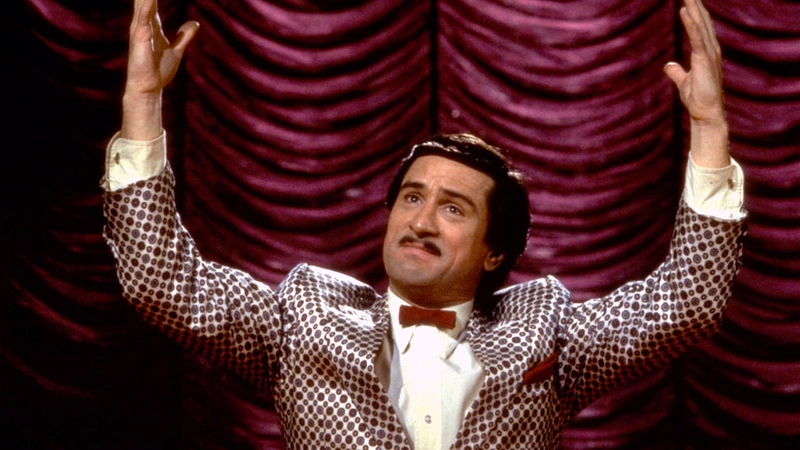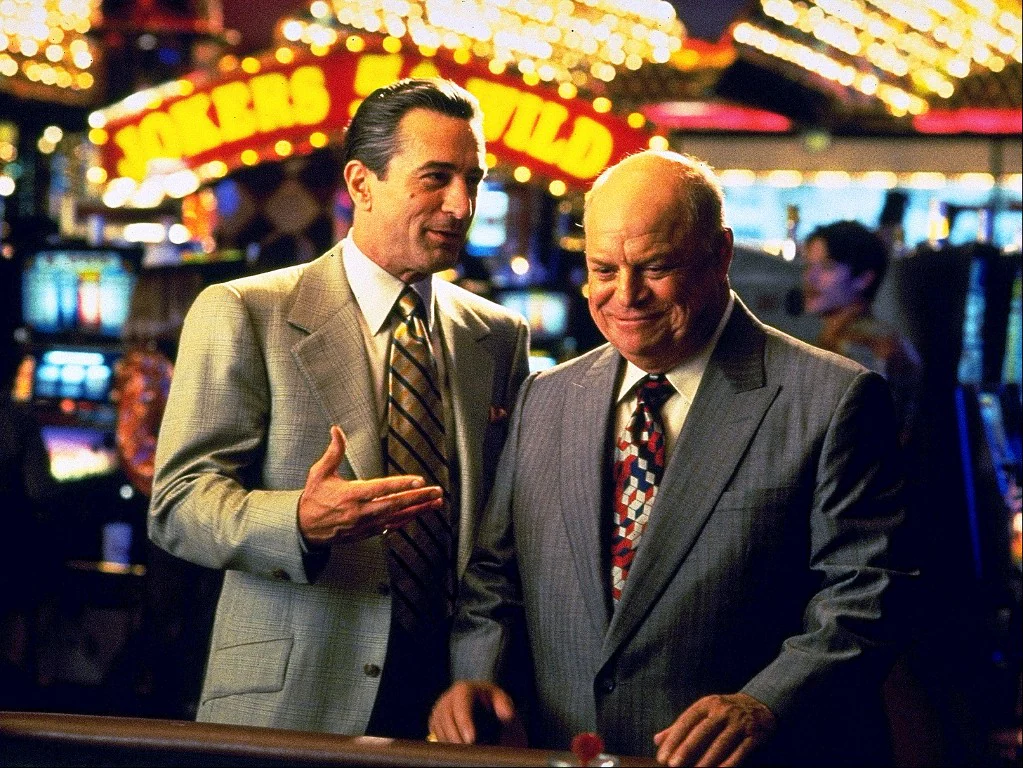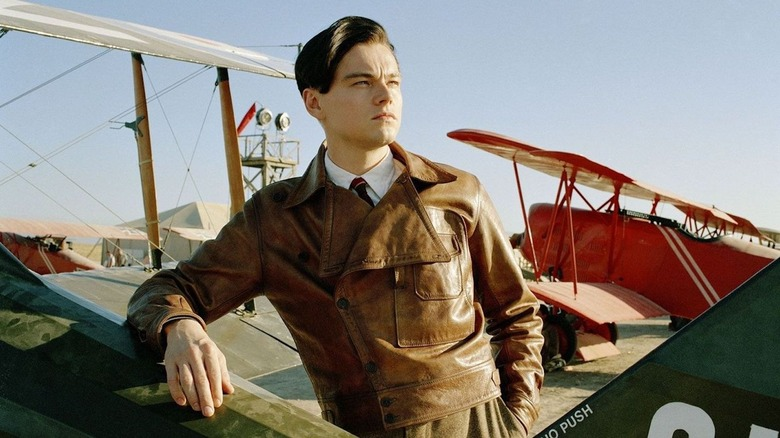Ahead of the release of Martin Scorsese’s new film this month, Killers of the Flower Moon, I take a brief look at some of his most (and least) well known films…
Taxi Driver (1976)
One of Scorsese’s earliest works, Taxi Driver brilliantly captures the depression, loneliness and dark world of its protagonist, Travis Beckle (Robert De Niro). An excellent trip back in time to a grimy and saturated 1970s New York. Filled with iconic moments, I’m just a tad disappointed at the storyline which I found hard to find an interest in. The film’s climax and epilogue, however, is excellent and compelling.

Raging Bull (1980)
Almost Shakespearean in its tragedy, Raging Bull is one of Scorsese’s most compelling dramas. It tells the story and career of boxer Jake LaMotta (Robert De Niro) and how his personal life is marred by paranoia, rage and jealousy (and a big ego).
The film’s production overall is excellent. Scorsese chose to shoot in black and white to give the film a look like old classic boxing matches on TV, whilst also indicating the past and to prevent colour saturation. The editing, by Themla Schoonmaker, is simply outstanding and one of the best on film, highlighting the brutal violence of the boxing ring. Those boxing sequences are amongst the hardest and toughest ever put to film, yet there is a strange beauty in their crisp production. The acting is also excellent, with De Niro winning Best Actor at the Oscar for his role of an unsympathetic protagonist, battling internal and external demons but who’s pride ultimately destroys his life. Joe Pesci and Cathy Moriarty also shine in their supporting roles as their love and admiration for Jake are slowly chipped away over time.
Over 40 years since its original release, the boxing gloves of Raging Bull are still as brutal, violent and riveting as they were in 1980.

The King of Comedy (1982)
A strange and bizarre film, The King of Comedy is an odd blend of comedy, paranoia and celebrity obsession. Robert De Niro plays Rupert Pupkin, a struggling standup comedian who becomes increasingly obsessed with his idol, Jerry Langford (Jerry Lewis). To become successful and famous, he stalks and kidnaps him to take the spotlight on a TV talk show.
Prevalent throughout the film is a strong feeling of delusion, paranoia and madness disguised as comedy. An ugly sibling to Taxi Driver, The King of Comedy shares the sad and obsessive viewpoint of its protagonist, with interposed scenes of fantasy and reality, with the viewer left to interpret which is which. Whilst there are definately some brilliant comedic moments throughout the film, the tone and feel overall does feel a tad stilted, with some very strange and awkward moments of madness. It’s a frustrating watch as unlike Taxi Driver, there is never an emotional or physical explosion or release, resulting in it being somewhat anticlimactic and tiresome. Perhaps that is the point though, as Pupkin laughs off at another of his lame jokes.
“Better to be king for a night than schmuck for a lifetime.“

Goodfellas (1990)
Consistently rated as one of the greatest gangster movies of all time, Goodfellas is a captivating journey into the world of organised crime in America. It chronicles the story of Henry Hill (Ray Liotta) and his associates from 1955 to 1980.
The screenplay, written by Scorsese and author Nicholas Pileggi, and adapted from his book Wiseguys, is one of the best ever written. This is complemented by brilliant narration from Liotta as the audience is taken into the amoral, hedonistic and glorious world of organised crime, with all of the main cast introduced in the first half hour all with their unique traits and mannerisms. The main acting trio of Ray Liotta, Joe Pesci, and Robert De Niro is one of the finest ever assembled, and their chemistry and relationships are a riveting watch as they experience the highs and lows of crime, especially as things get out of control in the final act (Henry’s reaction to the missing coke is priceless). Rarely has the combination of sight and sound been done as well in a film like this, with the soundtrack complementing and elevating the film’s sequences to another world of coolness and genius (Layla, what a song).
Brilliantly directed and edited (note the Copacabana tracking shot), with a killer pop rock soundtrack, and filled with iconic moments, Goodfellas is a compelling watch and exemplifies Scorsese at the peak of his career.
“Funny how, how am I funny?”

Cape Fear (1991)
Martin Scorsese hasn’t made many thriller films in his career – The Departed and Shutter Island – but Cape Fear is one hell of a ride and is terrifyingly effective and suspenseful. Robert De Niro stars as Max Cady, a rapist released after 14 years imprisonment, who is hell bent on revenge on his defence attorney (Nick Nolte) and his family.
A sense of constant tension, danger and dread permeates throughout the film as the events, violence and suspense build up throughout the two hour runtime. At the heart of this is De Niro’s terrifying performance as Cady – both evil and depraved but also extremely intelligent and smart, always one step ahead of his opponents. Nick Nolte as lawyer Sam Bowden is another murky Scorsese character – not exactly good or bad, just a man who makes increasingly abnormal and desperate decisions when engulfed in the madness and paranoia of a stalker.
Complementing this is the disorientating direction and shots by Scorsese (especially the close ups) and Elmer Bernstein’s eerie score (based off Bernard Hermann’s themes), all of which heighten the sense of danger and tension throughout. The script itself by Wesley Strick is also more complex than first glance – filled with flawed characters who mainly act out of self interest for themselves only. This was also Scorsese’s first film to use practical visual effects, which are handled well overall. The only major disappointment is the abrupt and rushed ending, which should have been built up a bit more.
Cape Fear is a fine (and underrated) Scorsese thriller and a very disturbing watch, best enjoyed in the dark with a cigar.
“Every man… every man has to go through hell to reach paradise.“

The Age of Innocence (1993)
Scorsese’s least known film tells the story of a love triangle between Newland Archer, a rich New York attorney, his wife May Welland, and her cousin Countess Ellen Olenska. As a period drama, this is masterful adaptation of Edith Wharton’s 1920 novel, led by excellent performances from Daniel Day Lewis, Winona Ryder and Michelle Pfeiffer. Direction by Scorsese is also distinctive in its tracking shots towards and away from characters and objects. The production and costume design is outstanding, with 19th century aristocratic New York authentically depicted vividly on screeen. Unfortunately though, I was bored with the storyline and didn’t care much for the characters. Certainly a film for closer analysis and critique though.

Casino (1995)
Probably my favourite Scorsese film, Casino is a wild 3 hr ride of the rise and fall of gambling expert Sam ‘Ace’ Rothstein (Robert De Niro) and his associates and friends. Hugely enjoyable and hilarious, and filled with iconic moments, like the desert scene, the film highlights the cultural zeitgeist of American tycoon and mobster excess of the 1970s and 80s and is peak Scorsese. De Niro, Joe Pesci and Sharon Stone are a holy trinity trio of actors at the peak of their careers. In patricular, Stone’s role as Ginger McKenna is incredible as she develops from highroll huster and showgirl, to trophy wife, to drug addicted maniac is engrossing viewing (and a tad tragic). Furthermore, the breakdown of the relationships between the three in the final act is brilliantly executed as everything goes to hell.

Kundun (1997)
One of Scorsese’s most underrated films, this is a masterful biopic of Tenzin Gyatso, the 14th Dalai Lama. Screenwriter and Tibetan activist Melissa Matheson actually met the Dalai Lama in 1990 whilst writing the script for Kundun. As a result the film is overall a historically accurate and authentic depiction of events and Tibetan culture.
Aided by dazzling cinematogaphy by Roger Deakins and an excellent minimalistic score by Philip Glass, this is a visual and aural spectacle akin to Bernardo Bertolucci’s The Last Emperor.
Personal Note – China and Disney have actively sought to block or suppress access to this film since its release in 1999 due to its political nature. As a strong proponent of free speech, I encourage all audiences to watch this film.

Gangs of New York (2002)
Another underrated work by Scorsese, this is a brilliant historical drama depicting 19th century New York and its citizens, immigrants and gangs. Although actually filmed in Rome, production and set design is excellent and remarkably authentic. Daniel Day-Lewis is dynamite as the terrifying William ‘Bill the Butcher’ Cutting in one of his great acting performances. This is also the first collaboration between Scorsese and Leonardo DiCaprio, with a solid performance as protagonist Amsterdam Vallon with a Hamlet background (vengeance for his father’s murderer). The violent action sequences and ending are also excellent, as is the soundtrack.

The Aviator (2004)
An excellent biopic about visionary aviation pioneer Howard Hughes, and his life during the 20th century. The cast, led by Leo DiCaprio, is excellent, and his descent from a chartsmatic playboy to OCD lunatic is gripping viewing. This is complemented by excellent production design (especially the aeroplanes) and distinctive cinematography – notice the red, cyan blue and back colour palette for the first hour of the film. Cate Blanchett’s American accent is a tad odd though. Oh, and Kate Beckinsale as actor Ava Gardner is absolutely gorgeous. Yet despite all of Hughes’ glory in planes, women and business, there is a sad hint of tragedy that grows throughout the film and makes it captivating.

Leave a comment